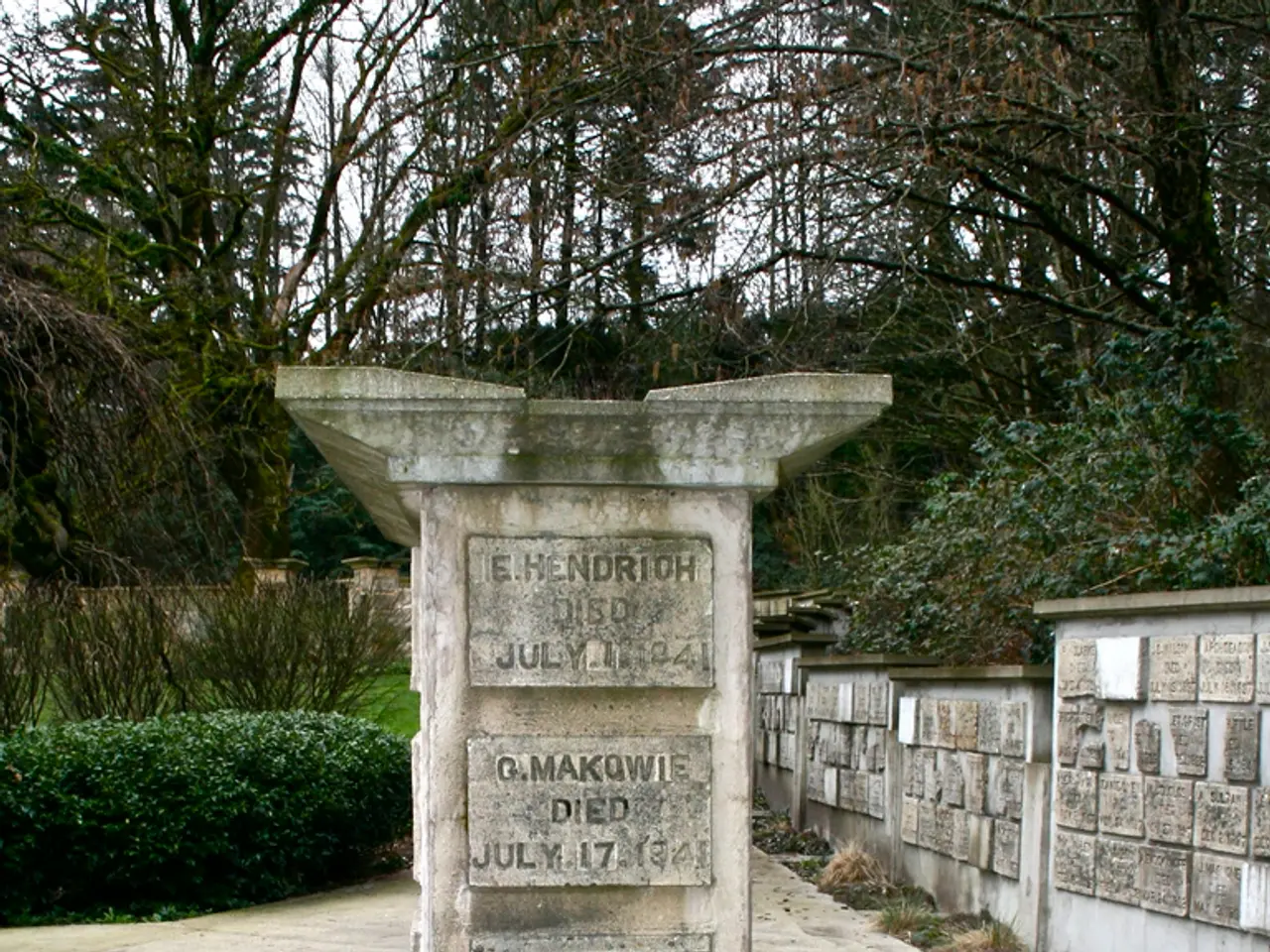Zambian leader's corpse to be handed back following South African court order
Zambia Prepares for State Funeral of Former President Edgar Lungu Despite Family's Wishes
A legal battle over the remains of former Zambian President Edgar Lungu is nearing its conclusion, as a South African High Court has ordered the family to repatriate the late president's body to Zambia for a state funeral.
The dispute has been centred around the tense relationship between Lungu and his successor, President Hakainde Hichilema. Lungu, who served as Zambia's head of state from 2015 to 2021, accused Hichilema's government of harassment and travel restrictions, including allegedly blocking his medical trip to South Africa[1].
In August 2025, the High Court in Pretoria ruled that the right of the state to honour a former president with a state funeral outweighs personal wishes or the wishes of the family[2]. The court emphasized that state funerals for former presidents are matters of national interest and protocol[2].
Despite the family's preference for burial in South Africa, the ruling mandates that Lungu's remains be returned to Zambia for a state funeral in Lusaka[1][2][5]. The burial location has not been disclosed, but officials have confirmed that it will now take place in Zambia[2].
The family has the option to appeal the court ruling, with proceedings adjourned to August 18, 2025[4]. However, the Attorney General of Zambia supports the ruling, hoping it will finalize the dispute and bring closure[2].
Lungu's family's resistance to repatriation has been attributed to the bad blood between the former president and President Hichilema, who was jailed in 2017 during Lungu’s presidency on charges widely seen as politically motivated[1].
The Zambian government insists on holding a state funeral for Lungu as a matter of national dignity and public interest[1][2]. The government had initially planned a state funeral in Lusaka and sought court intervention to expedite the process[1].
Edgar Lungu passed away in early June while receiving medical treatment in South Africa[6]. The repatriation of his remains and the subsequent state funeral will mark the end of a contentious chapter in Zambian politics.
[1] The Guardian, "Zambia: Edgar Lungu's family want president buried in South Africa", 10 August 2025, https://www.theguardian.com/world/2025/aug/10/zambia-edgar-lungu-family-want-president-buried-in-south-africa
[2] BBC News, "Zambia: Court orders Edgar Lungu's remains to be repatriated", 8 August 2025, https://www.bbc.co.uk/news/world-africa-58305836
[3] Al Jazeera, "Zambia: Edgar Lungu dies in South Africa", 2 June 2025, https://www.aljazeera.com/news/2025/6/2/zambia-edgar-lungu-dies-in-south-africa
[4] Reuters, "Zambia: Edgar Lungu's family to appeal court ruling on repatriation", 13 August 2025, https://www.reuters.com/world/africa/zambia-edgar-lungus-family-to-appeal-court-ruling-on-repatriation-2025-08-13/
[5] The New York Times, "Zambia: Edgar Lungu's Family Wants President Buried in South Africa", 11 August 2025, https://www.nytimes.com/2025/08/11/world/africa/zambia-edgar-lungu-burial.html
[6] CNN, "Zambia's former president Edgar Lungu dies in South Africa", 2 June 2025, https://www.cnn.com/2025/06/02/africa/zambia-edgar-lungu-dies-intl/index.html
The South African High Court's ruling mandates the repatriation of former President Edgar Lungu's remains to Zambia, despite the family's wishes for burial in South Africa [1]. This decision follows a dispute regarding the tense relationship between Lungu and President Hichilema, with political motivations suspected in Hichilema's arrest during Lungu's presidency [1]. The government highlights the state funeral as a matter of national dignity and public interest [1][2]. The media, including The Guardian, BBC News, Al Jazeera, The New York Times, and CNN, have extensively covered this contentious issue involving migration, politics, and war-and-conflicts within Africa, as well as general news [3][4][5][6].






